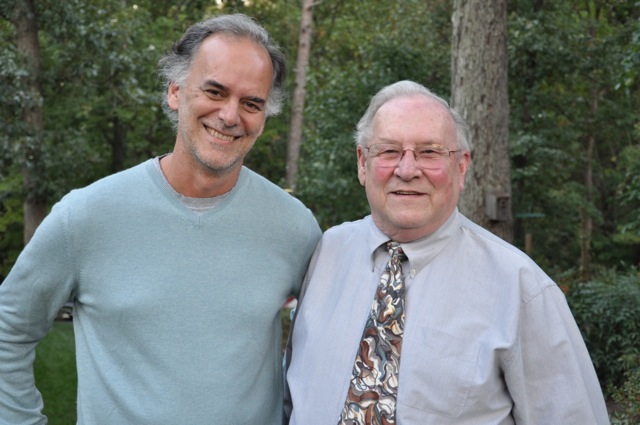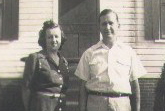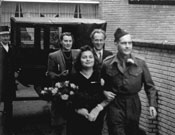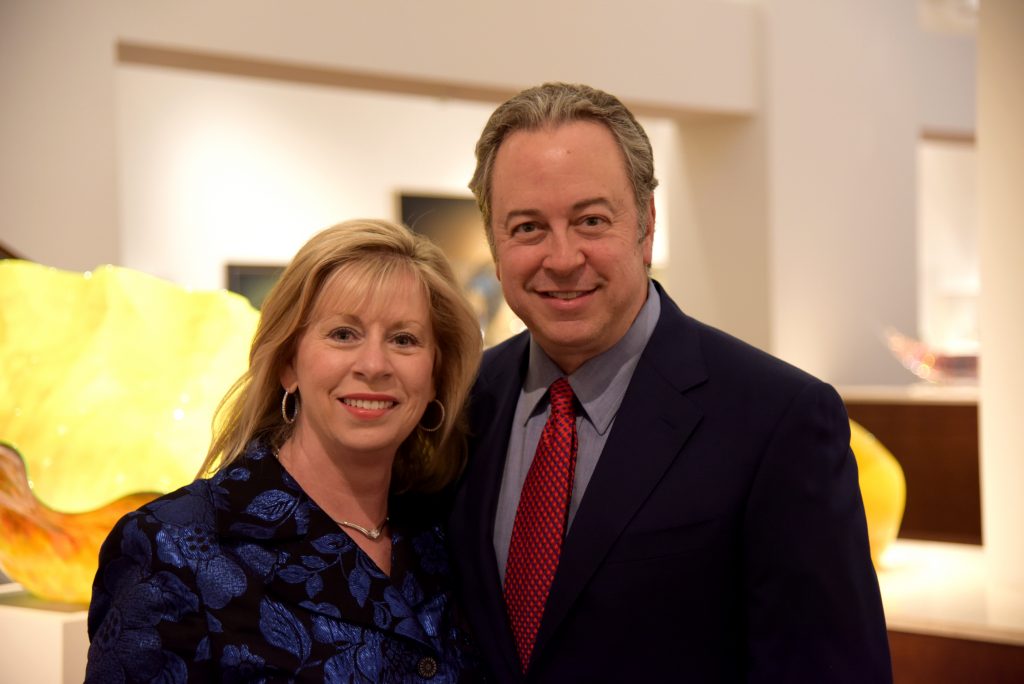
At Carolina, approximately 20 percent of undergraduates are first-generation college students. Those students are twice as likely as other students to leave college before the start of their second year.
Sunny and Lee Burrows hope to change that.
The couple recently established the Lookout Scholars First-Generation Students Fund to create a learning community that will provide support for such students over the next five years.
The idea for the Lookout Scholars Program came several years ago when Sunny Burrows read about a similar program at the University of Texas Austin that offered first-generation students access to small academic communities, faculty and peer mentors and other resources.
Inspired by the program’s success, Burrows, a 1984 gradaute of Carolina, looked to her alma mater to see if something similar existed. It didn’t.
As long-time donors to the College and as supporters of all levels of education through their family foundation, the Lookout Foundation, the couple thought a program to help first-generation students was a natural fit.
“My daughters [in college] call me because I’ve been there, and there’s a natural counsel that I can give them,” Burrows said. “Some of these kids don’t have that. If we can help foster a sense of belonging, give these students a solid foundation and break down the obstacles, I think we can graduate a lot more leaders.”
Their gift also funds a full-time director and a graduate student assistant to oversee the program.
This fall, 40 first-generation students from the incoming Class of 2021 will enroll in the Lookout Scholars Program. Potential students will be selected from the pool of first-generation students with demonstrated financial need.
The Lookout Scholars will take three classes as a cohort. They will be divided into two groups of 20 for an introductory English course and a course titled ‘Navigating the Research University.” All 40 students will take a large introductory biology course with other students.
“The program will be really good for students coming from smaller communities,” said Cynthia Demetriou, associate dean for retention in UNC’s Office of Undergraduate Retention. “Many of them are coming from rural high schools with smaller class sizes, and these students tend to struggle with the transition to a large lecture hall.”
Scheduling the students in the same section will give them a community within the larger class, she added.
In addition to block scheduling, the Lookout Scholars will have access to dedicated faculty mentors, peer mentors, and special activities designed to help them succeed at the university.
Demetriou says that Carolina as an institution has a strong identity, and many incoming students identify as Tar Heels—whether as sports fans or through family ties. But many first-generation students find it difficult to feel that sense of belonging.
The Lookout Scholars Program will foster that sense of belonging from the start, bringing the students together with others in the same situation.
Carmen Gonzalez, who serves as full-time director of the Lookout Scholars, is excited to launch the program.
“I’m looking forward to seeing the students build a community and engage in campus in a different sort of way,” Gonzalez said. “Academic cohorts and learning communities like these can help students feel empowered, giving them the self-confidence they need to be leaders on campus and to achieve the goals they set for themselves.”
DeSean Wilson, a first-generation college student and African, African American and diaspora studies major from Durham, says that while every student at UNC faces challenges, first-generation students often face additional hurdles.
“On a personal level, I have had to face ‘survivor’s guilt,’” Wilson said. “This refers to the anxiety that accompanies students who ‘made it.’ It is contrasted with the knowledge that others in my family and community did not have the same opportunities or experiences to go on to college.”
“I would love to have been a Lookout Scholar in my first year at Carolina,” Wilson said. “Having a small group of students as a cohort that come from a different walk of life but still are just as ambitious as you can cultivate relationships and habits for success that follow you throughout college and professional careers.”
A goal of the program is increasing graduation rates among first-generation students, but Burrows ultimately wants more for the students than just obtaining a diploma.
“The program will be a success if we can help these young people graduate with self-esteem and optimism and the ability to change their community and their world,” she said. “I hope we can change their perspective to one of success, helping them feel included and successful and being excited about their futures.”
By Joanna Cardwell (M.A. ’06)




